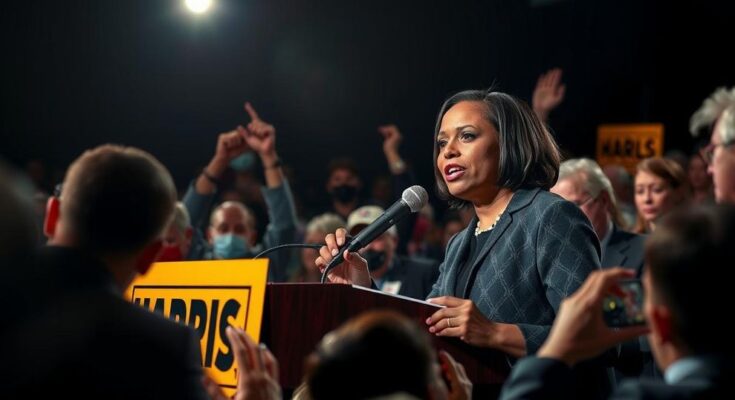The recent election results in Dearborn, Michigan, reveal a significant shift among Arab American voters, who expressed strong dissatisfaction with Democratic leadership, particularly regarding foreign policy issues. Figures such as Abbas Alawieh and Layla Elabed underscore the community’s growing disillusionment, evidenced by Trump’s unexpected electoral gains. The dynamics suggest a potential realignment of political loyalties, urging the Democratic Party to reconsider its approach to engage effectively with grassroots supporters.
On election night, the atmosphere at a political watch party in Dearborn, Michigan was reflective of disillusionment within the Arab American community. Abbas Alawieh, a lifelong Democrat and former chief of staff for Rep. Cori Bush, noted his frustration with President Biden’s unwavering support for Israel. In response, he co-founded “Listen to Michigan,” aiming to encourage local voters to register their dissent by voting “uncommitted” in the Democratic primary. This initiative garnered over 100,000 votes, signaling a strong message to the party concerning its policies towards Gaza. Despite these efforts, disappointment persisted even after Kamala Harris joined the ticket. Alawieh’s attempts to advocate for Palestinian representation at the Democratic National Convention were met with dismissal. “They said, ‘No, thanks. We’re good without you,’” Alawieh recounted, shedding light on the growing disconnect between Democratic leadership and the constituents that once formed its base. This shift was starkly evident during the recent elections when Trump garnered significant support in Dearborn, a city emblematic of Arab American political strength. In the election, Trump achieved a notable 42.5 percent of the vote in Dearborn, outpacing Harris, who secured only 36 percent. This outcome marks a pivotal change in voting patterns within a demographic traditionally aligned with the Democratic Party. Layla Elabed, a leading voice in Dearborn’s anti-war movement, expressed her anguish, remarking, “It solidified that our anti-war movement did very little to stop the bombs from killing our people.” James Zogby, founder of the Arab American Institute, denounced the Democratic Party’s approach, criticizing their reliance on a so-called “consultant class” that prioritizes fundraising over genuine outreach. Zogby expressed that Democratic leadership’s failure to engage with the Arab American community directly contributed to the party’s dismal performance in the region. Conversely, Rola Makki, a Lebanese-American Republican, reflected on the complex emotions surrounding Trump’s victory, acknowledging the ongoing humanitarian crises impacting her community while recognizing the shift in voting patterns that favored Republicans. The intricate tapestry of views within the Arab American community underscores a growing sentiment of alienation from the Democratic Party, as many perceive a lack of responsiveness to their concerns. In summary, the results from Dearborn reveal a troubling trajectory for the Democratic Party among Arab American voters, who feel sidelined by leadership that fails to heed their calls for justice and advocacy. Amidst this challenging landscape, figures like Alawieh and Elabed express a determination to reshape their political engagement moving forward, emphasizing the necessity for the party to regain its foundations of grassroots support.
This article elaborates on the recent electoral shifts in Dearborn, Michigan, particularly among the Arab American community. Historically a stronghold for Democratic candidates, the community has increasingly expressed dissatisfaction with the party’s leadership and its stance on pivotal issues such as foreign policy concerning Israel and Palestine. The emergence of local coalitions, such as “Listen to Michigan,” highlights a desire for a more representative and responsive political framework that addresses community-specific concerns. As the 2020 election results revealed surprising support for Donald Trump in traditionally Democratic areas, this article examines the implications of this shift for the future of Arab American voters in the political landscape.
The electoral results in Dearborn illustrate a notable fragmentation within the support base of the Democratic Party, particularly among Arab American voters. Frustrated with the party’s failure to respond to their concerns, community leaders have begun to explore alternative political avenues. As the repercussions of these elections unfold, it will be pivotal for party leadership to recognize and address these emerging gaps in representation to rebuild trust and engagement in forthcoming elections.
Original Source: slate.com




